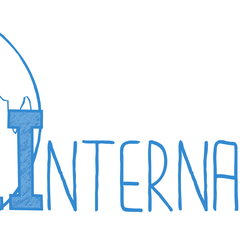
Advocates Celebrate Passage of Alec Smith Bill in Minnesota
15 Apr 2020, 8:26 p.m. in #insulin4all USA by T1International
After months of diligent advocacy, partisan gridlock, and intense negotiations, the Alec Smith Emergency Insulin Bill was signed into law today in Minnesota. Alec’s Bill is named for 26-year-old Alec Smith, who passed away after rationing his insulin in 2017. The legislation, which is the first of its kind in the nation, establishes a program for patients with diabetes to purchase the insulin they need at an affordable price. To get to this moment, advocates in Minnesota endured a tough - and long - fight.
Nicole Smith-Holt, Alec Smith’s mother and T1International Charity Ambassador said, ‘’If this had existed three years ago, Alec would still be alive. It has been a long, hard fight, alongside dedicated advocates across the state, but my family and I can rest easier knowing that lives will be saved through this legislation. While it is a truly huge step forward, we know this isn’t the end. Legislators and patients can also rest easy themselves knowing that the fight continues until every single person can access affordable insulin sustainably.’’
The purpose of this bill was straightforward. Nicole Smith-Holt, James Holt, and advocates with T1International’s Minnesota #insulin4all Chapter wanted to prevent needless deaths due to rationing insulin. Multiple studies have found that the high cost of insulin in the United States has led one in four people with diabetes to ration their doses. In Minnesota alone, rationing has caused multiple tragic deaths, including Alec Smith and Jesy Scherer-Radcliff.
Advocates with our Minnesota #insulin4all Chapter and throughout T1International’s network believe that access to insulin is a human right, and that no one should have to choose between paying their bills, buying groceries, or paying for their insulin. Alec’s Bill was developed to ensure that no one would have to ration their insulin because they can’t afford the skyrocketing price. Minnesota #insulin4all advocates were also determined to hold the pharmaceutical industry accountable with this bill, pushing for the companies to cover its associated costs.
The Alec Smith Emergency Insulin Bill (HF 3100) enables people with diabetes in Minnesota to access an emergency 30-day supply of insulin for a $35 copay. Patients would be eligible if their prescription is set to run out within one week, and they are unable to afford out-of-pocket costs of $75 or more.
The bill also creates a plan to ensure more sustainable affordability for people with diabetes who are uninsured or underinsured, including those on Medicare and those with high copays. Patients who qualify for longer-term support could pay $50 for a 90-day supply. To qualify for the program, Minnesota residents must be at or under 400% of the federal poverty level, which translates to $51,000 for individuals.
During the fight for Alec’s Bill, one of the key areas of disagreement between Republican and DFL lawmakers was who would pay for the program. Democrats wanted insulin manufacturers to pay to fund a state-run program. Under a compromise reached this April, pharmaceutical companies are required to replenish insulin stockpiles that pharmacies distribute to those who qualify for the program, and participate in additional programs that provide affordable insulin to Minnesotans in need. If the insulin manufacturers do not comply, they would face hefty fines - fees of up to $3.6 million in the first year of enactment and $7.2 million the second year.
Pharmaceutical companies strongly opposed the passage of the Alec Smith Emergency Insulin Bill, even threatening to sue the state of Minnesota should the bill pass. In 2019 alone, insulin manufacturers Eli Lilly, Novo Nordisk, and Sanofi spent heavily on lobbying, spending around $264,000 - more than triple the amount they had spent in 2018.
There is more to be done to guarantee #insulin4all in Minnesota. The bill passed by Minnesota legislators was criticized by Rep. Tina Liebling for its strict identification requirements that may exclude unauthorized immigrants and other vulnerable groups. Still, this bill lays an important foundation that can be built upon to include more Minnesota residents and guarantee affordable insulin for all who need it.
Reaching this point was not an easy feat, and it has demonstrated the true power of persistent advocacy. Finally passing the legislation came after months of negotiations and compromise. The countless hours spent by Nicole, her family, and the Minnesota Chapter have paid off, yet the advocates acknowledge that more work must be done. As the #insulin4all advocates plan their next steps, they hope that other Chapters will take inspiration from their determination as they celebrate this legislation.









![Hard Work Pays Off for #insulin4all Chapters [USA Update]](/media/thumbs/53/f9/53f96969ecb5a08163f2dab166c8caf9.jpg)
